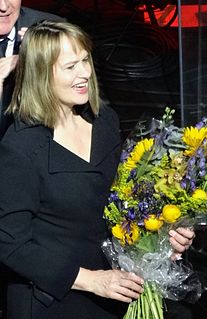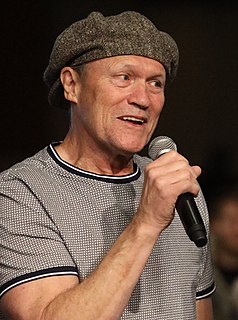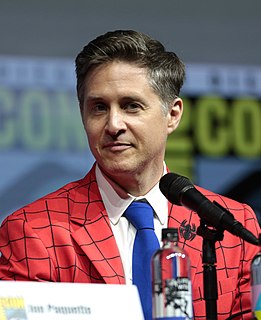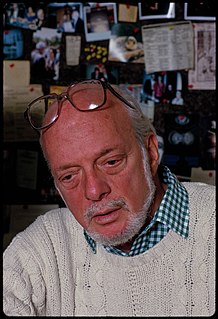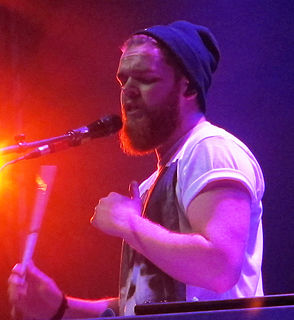A Quote by Anne Dudley
Obviously in Art of Noise, I'm just part of the group, and when I do film scores, it's always in collaboration with the director and other people involved.
Related Quotes
I learn a lot as a director from acting in other people's films and just in general. I want to try and be as involved in the art of filmmaking as possible. I feel that the only way to really do that is to take on as many roles as possible, whether it be as an actor, an editor, a director, a cinematographer. Basically, I like to help and be involved, so anything anybody asks me to do, my first reaction is to say "Yes."
Me and Kirby are very collaborative and it changes from film to film. The first project we worked on together, Derrida, we co-directed. The last film Outrage, I was the producer and he was the director. This film was much more of a collaboration - he is the director and I am the producer - but this is a film by both of us.
Well, I think that's been my career. I always choose stuff that's the same, yet different. These projects just happened. I didn't plan it out that way. I just happened to be free, and the director, Dan Pritzker, decided to do his film again. I say again because we did it seven years ago. A lot of the actors were not available, so he just couldn't wait anymore and he recast everything. Me and two other characters are the only people involved with the new one, who were involved with the previous one.
What I consider a good part for a woman and what some other Hollywood people think are good women's parts are very different. I don't' want to play the supportive girlfriend who has nine scenes and just loves that man, maybe cheats on him in one scene but will always be there, and I mean - give me a break. You'll be offered the "lead" in this new hot film with such-and-such A-list director, "a fabulous part" - a fabulous part? A fabulous part is a character with a soul, who starts here and goes to there, you know? There aren't many of those.
It usually starts with the director and any other creatives who may be involved at the start. It's a collaboration. I bring what I have naturally and, hopefully, what they cast me for, and then we start playing and tweaking until we have what they feel's right. It helps to have some artwork to inspire me, but I don't always get that luxury.
My interest in music tends toward being orchestral music. And the repertoire of music that exists is, to me, far more emotive than what is standardly used in movie scores. That isn't always. I think there've been some excellent movie scores by excellent directors. But for the most part, watching a film, one of today's movies, I think that the emotional undertone of movie scores is pretty poor.
Collaboration is just, really, a group of people getting in a room with their eye on a very similar prize and wanting to come out with the same show. The director, ultimately, is the guy in front of whom the buck stops. So, he has to have the courage to prevail. But, he has got to have a huge amount of respect for his collaborators.
Before writing a single note of music, and even before the spotting session, I find it best to sit down with the director and just listen to him or her talk about the film - what they're trying to say, what they want the audience to understand or believe, and a thousand other similar questions. The director has most likely been living with the film for years before a composer is attached, and so the director's inclinations, desires, and understanding of the film are paramount.
There are always forces at work in a society, certainly in America, which are really forces of censorship -either religious bodies or zealots who are always putting pressure on things, whether it's books or art or film. And all art is fundamentally subversive, because it upsets people's perceptions, their notions about society. Therefore, art is dangerous, but good art is always making us reassess our thoughts and feelings about how we relate to other people. There are always people who fear that and want to suppress that.
